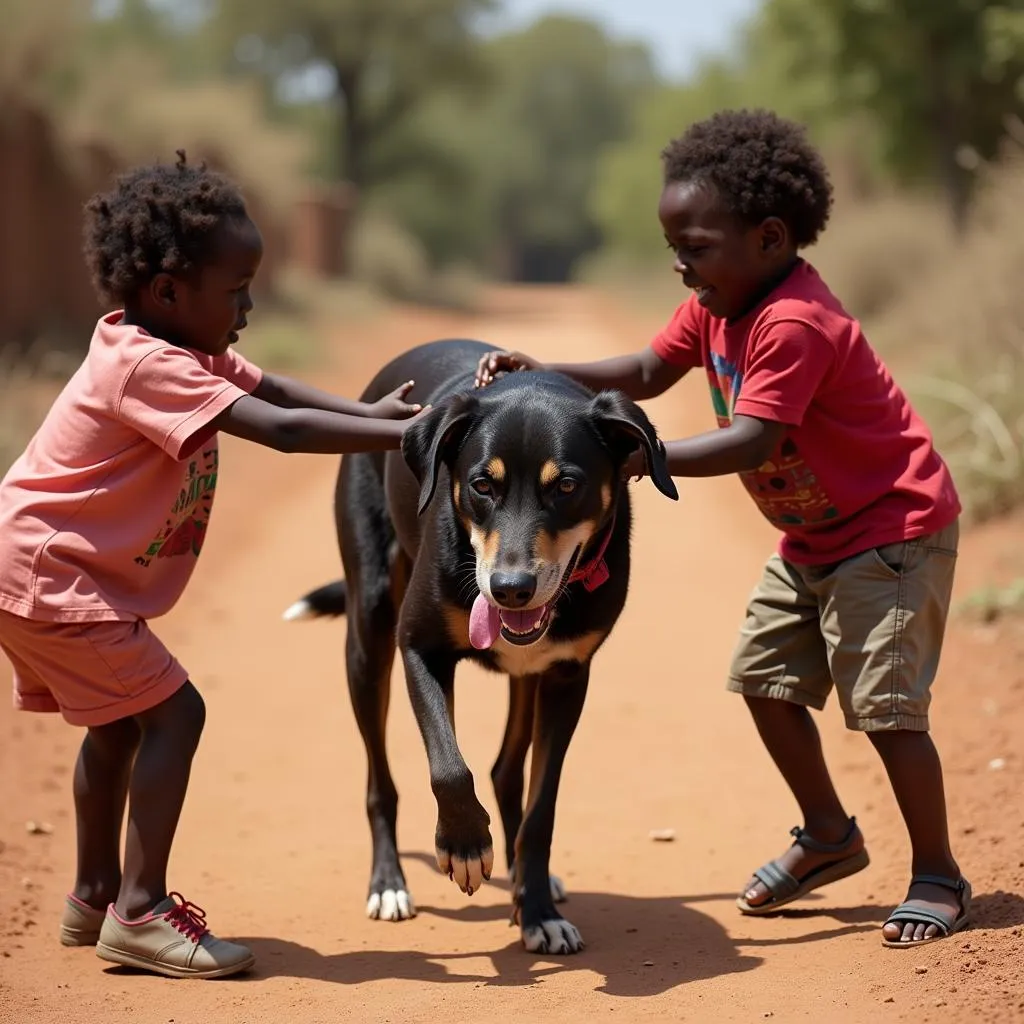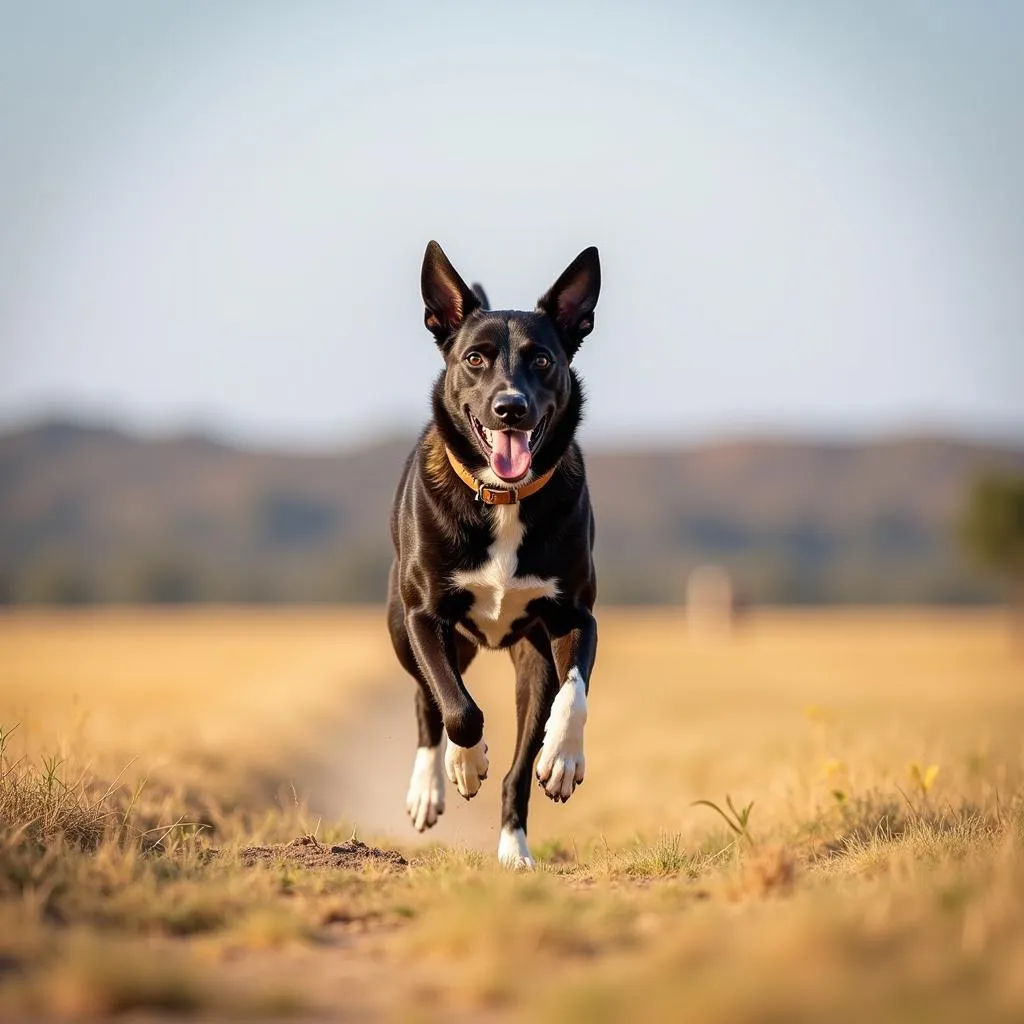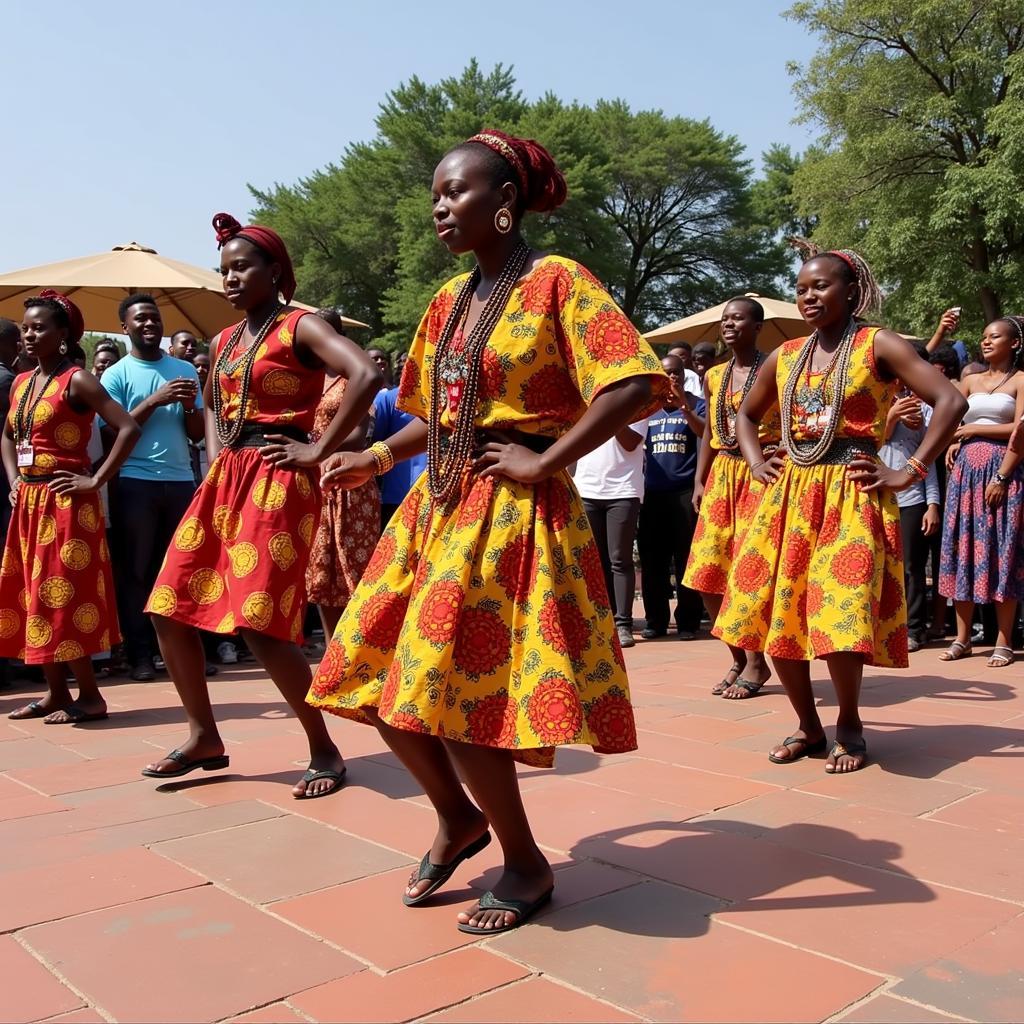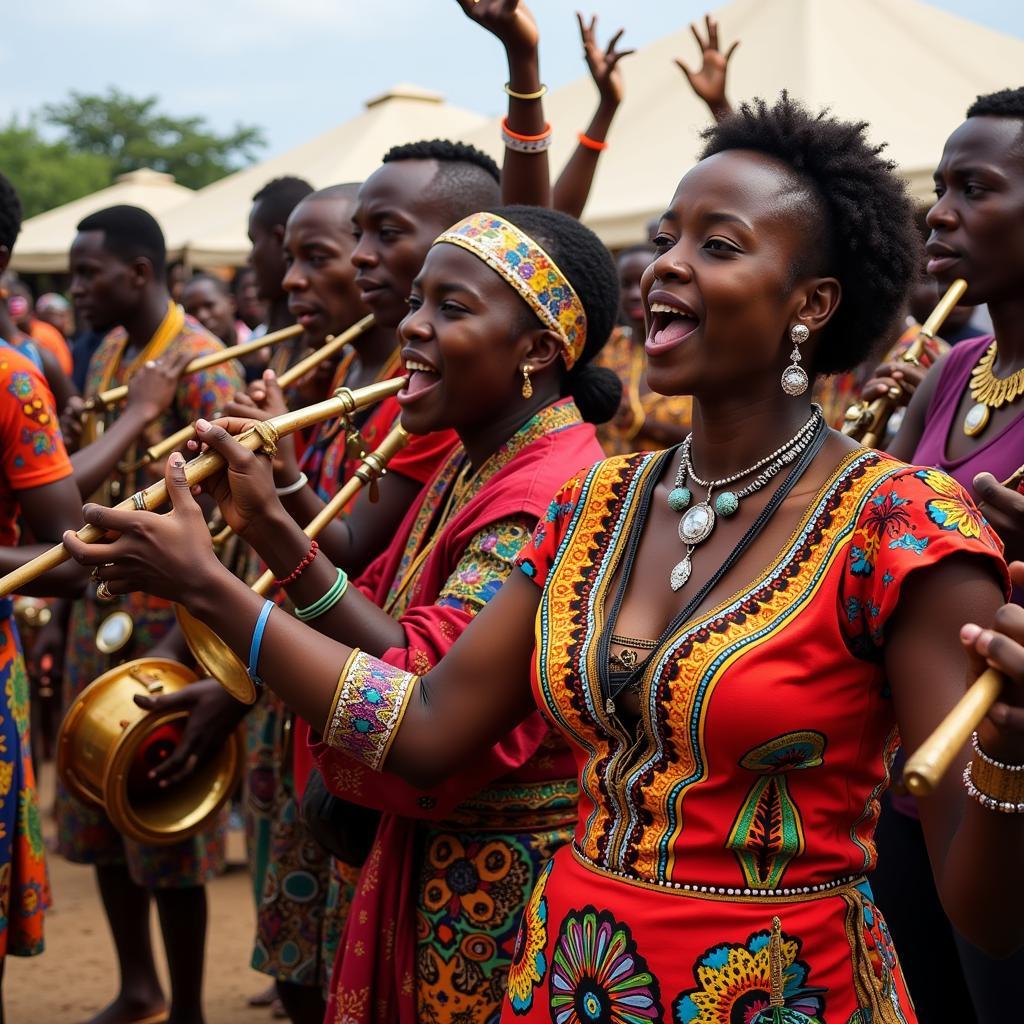Unmasking the Myth: The Truth About the “African American Dog”
The term “African American Dog” might spark curiosity, conjuring images of a specific breed originating from the African continent. However, the reality is that there’s no such thing as an “African American dog” breed. This phrase often arises from misconceptions and a lack of understanding of canine origins and classifications. Let’s delve into the fascinating world of dog breeds, debunking myths and celebrating the rich diversity of dogs across the globe.
Tracing Canine Origins: Beyond Geographical Labels
While the term “African American dog” lacks a factual basis, it offers a valuable opportunity to explore the historical and cultural influences that have shaped dog breeds as we know them today. Dogs, as we know, descended from wolves, with domestication occurring thousands of years ago. Over time, humans selectively bred dogs for specific traits, leading to the vast array of breeds we see today.
It’s important to remember that geographical labels often reflect where a breed was refined and standardized rather than its absolute origin. Many breeds boast complex ancestries, with roots spanning continents and reflecting historical migrations, trade routes, and cultural exchanges.
 African Village Dog Interacting with Children
African Village Dog Interacting with Children
Celebrating Diversity: African Dog Breeds
While there’s no “African American dog” breed, Africa boasts a remarkable diversity of indigenous dog breeds. These breeds, often referred to as landraces, have adapted over centuries to thrive in specific environments and fulfill traditional roles within their communities.
Here are a few examples of African dog breeds:
- Africanis: Known for their loyalty, intelligence, and resilience, Africanis dogs have served as companions and working dogs for millennia.
- Basenji: This unique breed, characterized by its inability to bark, hails from Central Africa, where it was prized for hunting and companionship.
- Rhodesian Ridgeback: Originating from Southern Africa, the Rhodesian Ridgeback is a powerful and loyal breed, historically used for hunting lions.
- Sloughi: This elegant and swift sighthound, originating from North Africa, has a rich history as a hunting companion and guardian breed.
These are just a few examples of the incredible diversity of dog breeds found in Africa. Each breed possesses unique characteristics, reflecting its historical context and the relationship it has forged with humans over generations.
 Africanis Dog in Motion
Africanis Dog in Motion
Dispelling Myths: The Importance of Responsible Terminology
Using accurate terminology when discussing dog breeds is crucial. The term “African American dog” perpetuates misconceptions and undermines the understanding of canine origins. It’s essential to recognize that:
- Breed designations are complex: They encompass historical, geographical, and cultural factors, often defying simple categorizations.
- Diversity should be celebrated: The canine world thrives on the variety of breeds, each with its unique traits and history.
- Responsible pet ownership includes accurate knowledge: Understanding breed characteristics and origins helps us provide appropriate care and training for our canine companions.
Instead of relying on misleading terms, let’s embrace the richness of canine diversity and appreciate the unique heritage of each breed, recognizing the complex interplay of history, geography, and human influence.
Beyond Labels: Appreciating the Individual Dog
While breed characteristics can provide insights into a dog’s temperament and needs, it’s crucial to remember that every dog is an individual. Just as humans within a cultural group possess unique personalities, so too do dogs.
When encountering a dog, approach it with an open mind, respecting its individuality. Focus on understanding its behavior, communication signals, and individual needs rather than relying solely on breed stereotypes.
 Veterinary Care for a Mixed Breed Dog
Veterinary Care for a Mixed Breed Dog
Conclusion: Embracing Knowledge and Celebrating Canine Companionship
The next time you hear someone mention an “African American dog,” take it as an opportunity to engage in a conversation about canine diversity and the importance of responsible terminology. By understanding the complexities of breed designations and celebrating the unique heritage of each dog, we foster a deeper appreciation for our canine companions. Remember, it’s the bond we share with our dogs, not their labels, that truly matters.



